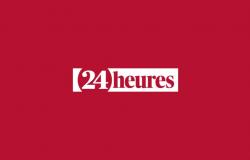Billionaire activist investor Ryan Cohen on Tuesday won the dismissal of a shareholder complaint accusing him of cashing in on Bed Bath & Beyond shares too quickly as the home goods retailer headed for big deals. not towards bankruptcy.
Manhattan District Judge Dale Ho said two former Bed Bath & Beyond shareholders could not force Mr. Cohen to return profits from the sale of his stake, estimated at 11 percent, because the company’s subsequent bankruptcy retailer rescinded their claims.
The shareholders sued Mr. Cohen under a federal law that requires corporate insiders, including large shareholders, to forgo “short-term” profits from buying and selling company stock. a company over a period of six months, the sums thus obtained having to be returned to the company.
Mr. Cohen founded the online pet products retailer Chewy and is now chief executive of video game retailer GameStop.
He became known as the “meme king” among ordinary investors who sparked the meme stock craze in the early 2021s, usually through online forums. Forbes magazine estimates his fortune at $4.2 billion.
Lee Squitieri, a lawyer for the shareholders, declined immediate comment, saying he was reviewing the decision. Mr. Cohen, through his lawyer Dave Wollmuth, declined to comment.
Mr. Cohen revealed a 9.8% stake in Bed Bath & Beyond in March 2022 and pushed for changes, including bringing in new directors and exploring a sale of the Buy brand Buy Baby.
He angered other shareholders by abruptly selling his stake, the percentage of which had increased thanks to share buybacks, five months later for an estimated profit of $60 million.
Bed Bath filed for bankruptcy in April 2023 and its common stock was canceled when the Chapter 11 plan took effect in September.
Mr. Ho said the plaintiff shareholders, Todd Augenbaum and Judith Cohen, had standing when the trial began in October 2022, but that was no longer the case.
He rejected arguments that they still had a financial interest because they purchased stock from a Bed Bath & Beyond creditor, that they could have received incentive bonuses or attorney’s fees, and that they deserved to be reimbursed for their canceled actions.
The case is: In re Bed Bath & Beyond Inc Section 16(b) Litigation, US District Court, Southern District of New York, No. 22-09327.





